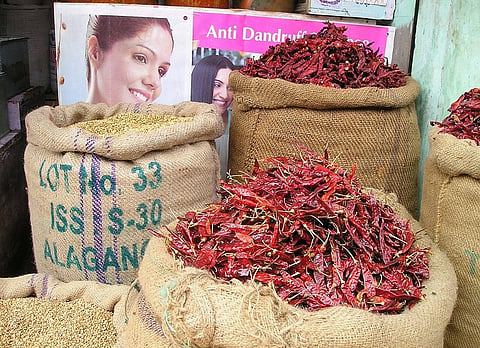

The Union Ministry of Agriculture and Farmers Welfare has written to the Karnataka government to issue an ordinance, which would reduce the regulatory role of the Agricultural Produce Marketing Committees (APMCs) from the physical markets, in light of the coronavirus pandemic.
In a letter dated May 5, to the Additional Chief Secretary of Karnataka, the centre has requested that the APMCs’ role in the fruit and vegetable mandis be reduced and that the state adopt the Agricultural Produce and Livestock Marketing (Facilitation and Promotion) Act 2017.
The APML Act had introduced nine new metrics of how the APMCs would function. These metrics include the APMC’s regulatory role within the premises of the mandi, separation of APMCs power from the functioning of the managing director of the Mandi Board, declaring warehouses, cold storage units as market sub-yard, deregulating the sale of fruits and vegetables, private market, direct marketing and ad hoc wholesale buying, e-trading, unified license for across the state and single point levy for market fees.
Karnataka has so far adopted eight out of the nine provisions of the APML Act. However, it had not restricted the role of APMCs just to the mandis. Farmers in the state are now calling it an anti-farmer move.
“This is an anti-farmer move. If there is an ordinance towards the APMC from higher powers, then the cooperative will not be in our power any longer,” says Veersangaiah from the Karnataka Rajya Raitru Sangha.
Veerasangaiah further stated that e-trading would be very difficult for the farmers at this point. “The farmers are not very educated, and we have not gotten used to the system, as we do not have the required training. We have tried many times but it has not worked out. When we are not able to even swallow water, why would they try to push solid food down our throats?” Veersangaiah asks.
Prakash Kamaraddi, the former chairperson for the Karnataka Agricultural Prices Commission, says that APMC is “the government’s last protection for farmers. Why should they remove this protection as well?”
What is APMC?
APMC is a physical market where farmers can bring their produce in order to sell wholesale to traders.
It is considered as better for farmers, as farmers can know the market prices across markets in the state, and can sell at the rate set by the APMC.
Prakash says that it is better for farmers to sell at the APMC market because they have better bargaining power there. “When big traders come to APMCs, farmers have better bargaining power as buyers cannot threaten to go to another farmer as prices are the same. The farmer will have excess stock, some of which might have started to rot. The farmers might get desperate and sell it at that price, and thus they get cheated by the traders. The APMC avoids this by regulating the prices, and regulating the grade and weight of the produce as well,” he added.
For example, tomatoes are grown in huge quantities in Kolar district. Prakash points out that “prices in the production centres will be much lower than in the consumer’s market due to the large supply. But in consumer markets where there is low supply, like in North Karnataka, the prices are much higher. APMCs exist to give farmers a fair price for their produce.”
Prakash Kamareddi adds that in fact, APMCs should get even more decentralised. “Why should farmers have to bring their produce to the nearest towns’ APMCs? The government should bring the APMC to the farmers, by providing transport to their smaller farmers and sourcing produce from there.”